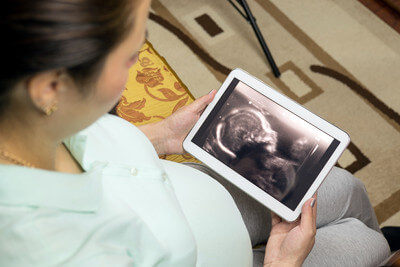Pregnancy Care
Pregnancy is one of the most exciting time of a woman’s life, especially for the first time mother! We can guide you through your pregnancy each step of the way, from conception till delivery
Early Pregnancy Complications
Morning Sickness, Bleeding, Miscarriage, Ectopic Pregnancy
These conditions may affect mothers in the early stages of pregnancy, and are more common then generally realised It is important to see a gynaecologist early, so that life-threatening conditions such as ectopic pregnancy can be excluded.
Routine Pregnancy Antenatal Check Up
Our antenatal care routine is based on internationally established guidelines, based on latest WHO (World Health Organisation) and RCOG (Royal College of Obstetricians and Gynaecologists) standards. Pregnancy is a physiological, natural process, therefore minimal intervention by doctors are needed most of the time.
The doctor’s role is to identify any potential problems throughout the nine months pregnancy journey, and appropriate tests will be advised accordingly.
Ultrasound Scanning, Fetal Anomaly Scan
Ultrasound technology is a safe way of monitoring the baby’s growth in the mother’s womb. By using soundwaves at frequencies that humans can’t hear (ultrasound), the shape, bones, organs of the growing baby can be examined instantly. In nature, bats and dolphins use sound to map out the structures around them, and ultrasound machines use the same principle. When using ultrasound waves on the baby, it will be just like talking to the baby for a few minutes.
As ultrasound technology has continually improved over past 30 years, so does the quality of images we get. This means that we can looks for tiny details never before possible, at even earlier in the pregnancy. Abnormal structures that could only be seen at 5 months, can now be seen even earlier.
Fetal Anomaly Scan or Detailed Scan is an extended ultrasound examination of the fetus whereby all parts of the baby is looked at in detailed, from top of the head to the feet. Structures examinined include brain structures, cleft lip, spine developement, heart chambers, internal organ location, fingers, etc. The test takes about 20 minutes.
Down Syndrome Screening; First Trimester Screening, Nuchal Translucency Scan, Non-Invasive Chromosome Check
Down Syndrome is a type of chromosome abnormality, whereby the baby has an additional chromosome no 21 in all the cells in his/her body. Since the 21st chromosome is small in size, it’s effect on the overall heath of the baby is not as significant as the bigger chromosomes. Down syndrome children may have initial developmental delay, but most will be able to take care of themselves and live independant lives.
The conventional way of confirming Down syndrome is to take a sample from the placenta (between 10 to 15 weeks), or the fluid around the baby (after 16 weeks). These tests are very accurate but have a very small risk of developing complications resulting in the loss of the pregnancy.
Tests are available now to test for having a Down Syndrome baby without any risk to the pregnancy, even as early as 10 weeks of pregnancy. Accuracy of these test range from over 90% till 99.1%.
Twin Pregnancy care
Mentioned the word ‘twins’ and everybody smiles. In reality, twin pregnancy carry 9 times the risk of carrying one baby. The most significant complication is the possibility of premature delivery, ie, delivery of baby before the baby is mature, which could be 1 month premature, or even up till 4 months premature.
Other risks of twin pregnancy, include gestational diabetes, high blood pressure, placenta problems, growth restrictions. Care of twin pregnancy will be more intensive than carrying a single baby due to the above mentioned risks, as earlier identification of complications can allow early treatment and reduce effects of complications to babies and mother.
High Risk Pregnancy Assessment
It is important for women planning to get pregnant get an assessment of their medical well-being before conceiving. Ideally, women should enter pregnancy when they are as healthy as possible so that the pregnancy is complicated by pre-existing conditions, such as diabetes, thyroid disease, heart problems, high blood pressure, etc, which may affect the growing baby, as well worsen the mother’s condition.
Details of medical condition will be discussed, and all medications reviewed to identify whether they are suitable to be taken during the pregnancy later. If the pre-existing medical condition is not optimal, then pregnancy plan may have to be delayed to sort the medical conditions first.
Delivery and Postnatal Care
After 9 months of waiting, the final step is the safe delivery of baby, with the least risk possible to the mother. Both natural and caesarean delivery has its pros and cons, and we will provide guidance and unbiased explanation for either delivery methods.
If opting for natural birth, issues such as recognising signs of labour, pain control during labour, and possible need for induction of labour (using medication to start labour contractions instead of waiting for labour to begin on its own).
Safe limits during labour will also be established beforehand, whereby if the risk of attempting natural delivery becomes dangerous for the baby (such as baby passing motion inside the womb, or heart rate starts dropping frequently) then caesarean delivery will be done.

